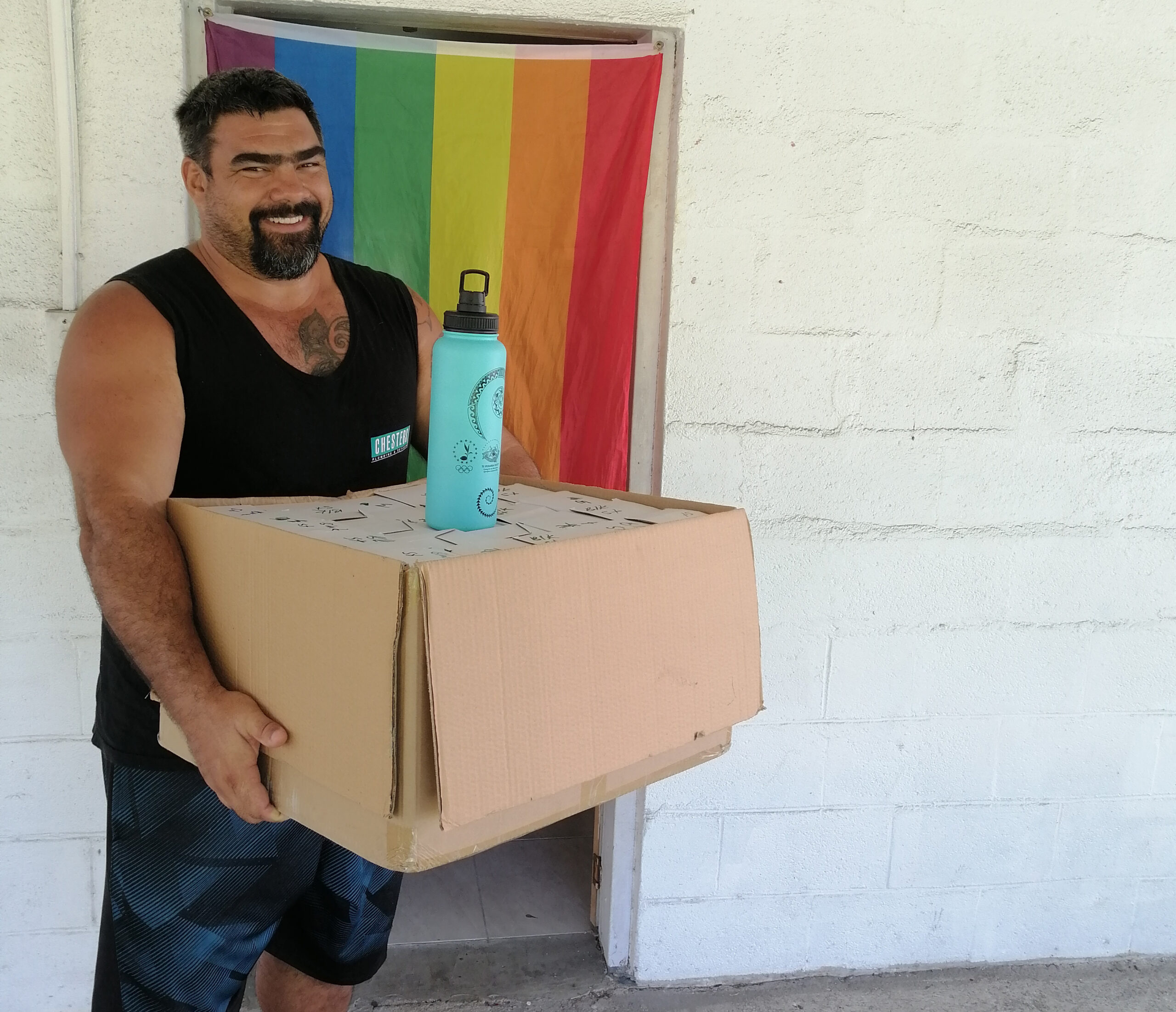Plastic bottles, what a waste!
Saturday 13 February 2021 | Written by Losirene Lacanivalu | Published in

Thomas McDonald with bottles for the Rarotonga Sailing Club. TIS/21021264
Plastic bottle waste is currently making up about 20 per cent of the waste found in our landfill.
It is one of the three major contributors of waste taking up space in our landfill, along with paper and other organic waste.
Plastic waste has become an insidious and serious problem here in the Cook Islands. Along with other Pacific Island countries, we struggle to properly deal with plastic waste due to a lack of finances and proper infrastructure required to achieve proper disposal. The Pa Enua has also suffered a plastic outbreak, with no engineered landfills and limited money and resources to get plastic waste off their islands. This overflow of plastic waste then typically results in waste ending up dumped within the inland areas of the small islands, buried or burnt.
Historically there have been higher exports of plastics waste off our island. But this has dwindled with time due to global influencers such as China putting a stop to receiving the world’s plastic waste for recycling. As a result, very little plastic waste has been exported from our island home between 2019 and 2020, and this comprised of a small large plastic wraps used to cover bulk commodities imported onto the island. The remainder bulk of plastics being bottles, are now simply being stored in bales at our landfill, exposed to the sun and deteriorating in quality with time.
There are major costs associated with waste management in the Cook Islands. Associated costs include collection and management of waste (including its final disposal). An Advanced Disposal Fee (ADF) has been talked about for years to fund waste management but has yet to be implemented. This is basically a fee added to the initial cost of imported items in order to fund their removal at end of life. Not only on plastics but all imports that require recycling, such as stoves, fridges, cars, TVs and computers. This is an obvious solution but requires the political will to push it through Parliament.
Another initiative currently in place to help reduce plastic bottle waste, is the ‘Plastic Battle Campaign’, designed to help reduced plastic bottle waste generated at sporting events. Te Ipukarea Society and the Cook Islands Sports and National Olympic Committee (CISNOC) have partnered up and developed a fundraising initiative for sports clubs. We supply the bottles to the clubs at a subsidised price, and they sell them to their players and supporters to raise money. Choosing to be a part of the Plastic Battle Campaign involves clubs having to commit to a pledge to reduce their plastic bottle waste generated at their sports ground.
Clubs already on board with the initiative include several netball clubs, Cook Islands Gymnastics, Cook Islands Volleyball and Triathlon Cook Islands.
Plastic battle is open to all sport clubs. Bottles will be distributed amongst interested clubs till all bottles have sold out. Bottles are selling out fast, so if your club is registered with CISNOC and interested in joining the Plastic Battle Campaign, do get in touch with Te Ipukarea Society on 21144 or email at info@tiscookislands.org.












































